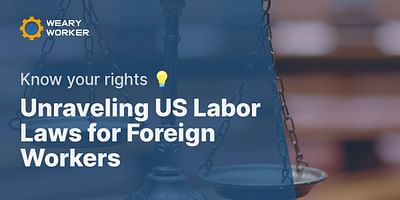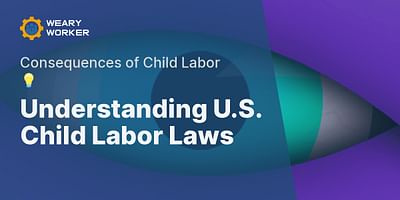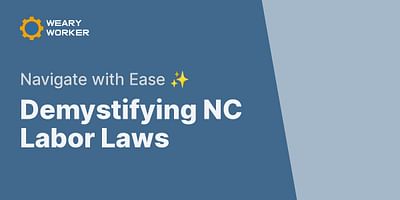Arthur Medhurst is a seasoned professional in the field of workers' compensation settlements, specializing in simplifying intricate legal concepts. With more than a decade of hands-on experience, he takes pride in guiding employees through the intricate labyrinth of legal procedures. Arthur is a born-and-bred New Yorker and an enthusiastic supporter of the Yankees.
If federal labor laws were absent, the implications on the workforce and businesses could be far-reaching. The absence of these laws would mean a significant shift in the balance of power, with potential negative impacts on workers' rights, workplace safety, and fair compensation.
🔎 Unveiling the Consequences on Workers' Rights without Federal Labor Laws
Without federal labor laws, workers' rights could be severely compromised. Key protections such as the right to organize and bargain collectively, protection against discrimination, and the right to a safe and healthy workplace might be undermined. In the absence of these federal laws, the onus would fall on state laws, which vary greatly across the country. For those states with weaker or non-existent labor laws, workers could find themselves in precarious situations.
For a deeper understanding of workers' rights, you can refer to this FAQ on Workers' Rights in the US.
💸 What Happens to Workers' Comp in the Absence of Labor Laws?
Workers' compensation, a key aspect of federal labor laws, provides financial assistance to employees who suffer work-related injuries or illnesses. Without this, workers might have to bear the cost of medical treatment and loss of wages, which could result in significant financial hardship. You can learn more about this in the FAQ on Ensuring Compliance with Labor Laws and Standards.
💰 Your Paycheck without Federal Regulation: The Impact on Fair Compensation
Federal labor laws also ensure fair compensation for work, including minimum wage provisions and overtime pay. In their absence, employers might exploit workers, paying them less than fair wages for their labor. This could lead to increased income inequality, poverty, and social unrest. For more on this topic, check out the FAQ on US Labor Laws and Minimum Wage.
🏢 No Labor Laws: A Blessing or a Curse for Businesses?
While the absence of federal labor laws might initially seem beneficial to businesses due to reduced regulations, in the long run, it could lead to negative consequences. Worker dissatisfaction could increase, leading to high employee turnover, decreased productivity, and potential legal conflicts. Additionally, businesses that treat their workers unfairly might face reputational damage, affecting their customer base and profitability.
To further understand the importance of labor laws, let's take a look at a video that explains the concept of industrial relations, a key aspect of labor laws.
As the video explains, industrial relations, which are governed by labor laws, play a crucial role in maintaining a balance of power between employers and employees. This underscores the importance of federal labor laws.
Ultimately, federal labor laws play a pivotal role in protecting the rights of workers and maintaining a balance of power between employers and employees. Their absence could result in numerous negative implications, affecting not only workers but businesses and the economy as a whole.
Implications of Absence of Federal Labor Laws
This quiz will test your knowledge on the potential implications if federal labor laws were absent.
Learn more about Implications of Absence of Federal Labor Laws 😮 or discover other Weary Worker quizzes.















